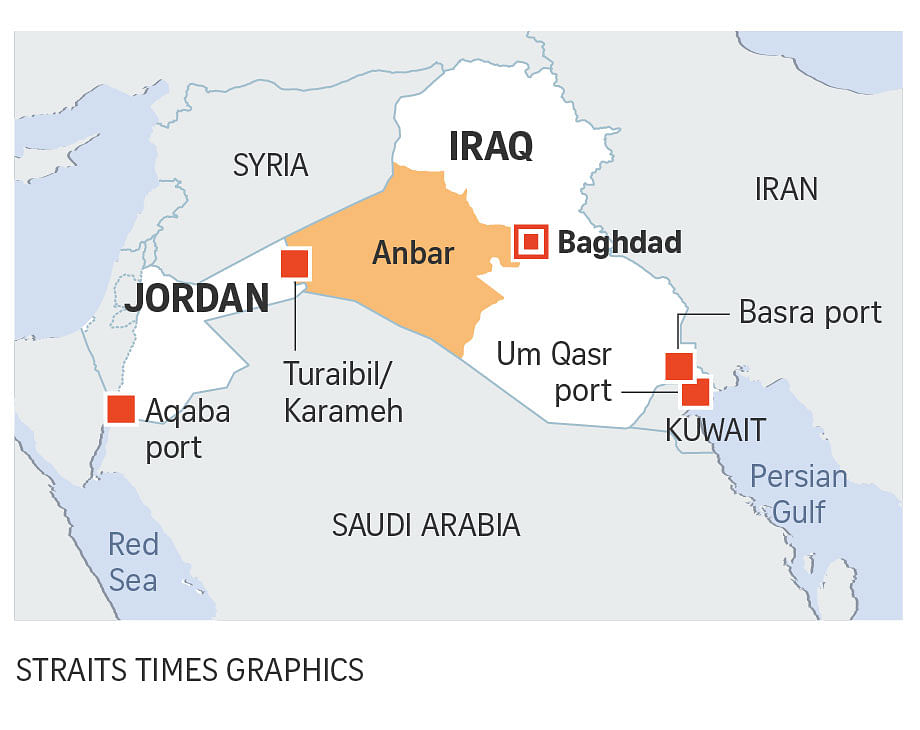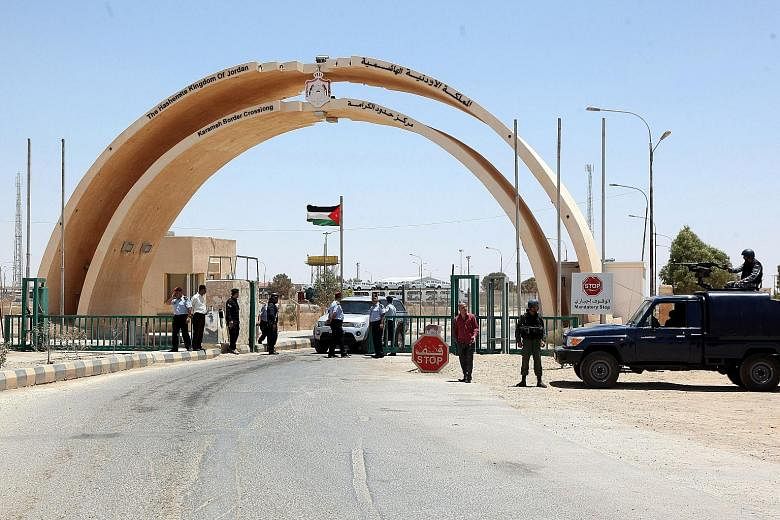AMMAN • Jordan and Iraq have reopened their only border crossing, saying security had been restored three years after the Islamic State in Iraq and Syria (ISIS) militant group seized control of frontier areas.
In a joint statement, the two governments yesterday said the crossing, called Turaibil in Iraq and Karameh in Jordan, was reopened after it was "secured... against attacks by criminal gangs".
The border crossing is part of a crucial route linking the Iraqi and Jordanian capitals, and its reopening comes after Iraqi forces managed to retake most of the territory seized by ISIS in 2014.
The route passes through the vast desert province of Anbar, where ISIS maintains some of its last bastions, including the towns of Rawa, Aanah and Al-Qaim, more than 200km north of the border post.
The reopening of the post is a sign of increasing stability in the area and the restoration of commercial traffic will be vital for both economies.
Iraq has also been working on securing the highway linking its Basra port in the south to Jordan, where the Red Sea port of Aqaba has long served as a gateway for Iraqi imports coming from Europe.
Although the highway has been secured after driving out the militants, the threat of hit-and-run attacks on convoys is ever present, say security experts. There have been several attacks by militants near al-Rutba town, the last town before the border with Jordan.
A Western diplomatic source said the Iraqi authorities have awarded a contract to a United States security company that will employ a local force to secure the highway. The source gave no further details.
Jordan hopes the reopening of the route will revive exports to Iraq, once the kingdom's main export market, accounting for almost a fifth of domestic exports or about US$1.2 billion (S$1.63 billion) a year, according to the International Monetary Fund (IMF). They have fallen by more than 50 per cent from pre-crisis levels.
"This will increase industrial exports and also revive the two countries' trucking industry. It's a major boost to the economy," said Mr Nael Husami, general manager of the Amman Chamber of Industry, adding that transport costs would fall by nearly half.

Jordanian exporters have had to use more expensive sea routes to Iraq's Um Qasr port or another land route across Saudi Arabia and Kuwait, businessmen said.
The restoration of trade links will also give a push to an oil pipeline project running from Basra to Aqaba. Jordanian Prime Minister Hani al- Mulki had visited Baghdad earlier this year to revive the frozen project.
Jordanian officials are hopeful the crossing with Syria on its northern border can also open by the end of the year once a US-Russian de-escalation zone in south-west Syria that includes the area is cemented.
The IMF recently said that prolonged conflicts in neighbouring Syria and Iraq were weighing on Jordan's debt-ridden economy and the opening of these export routes would boost economic growth.
AGENCE FRANCE-PRESSE, REUTERS

